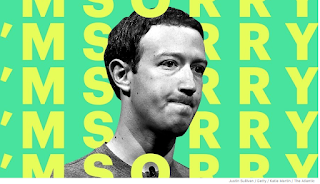Owen Jones OwenJones84 on Twitter: "The main thing I've learned from working in the British media is that much of it is a cult. Afflicted by a suffocating groupthink, intolerant of critics, hounds internal dissenters, full of people who made it because of connections and/or personal background rather than merit."
Owen Jones commenting on his tweet on Medium: "This tweet has triggered such an inferno amongst British media types, the response would probably have been more measured if I’d told every single one of their mothers to F off in person...Nothing caused so much anger as my suggestion that the British media is profoundly socially exclusive. The journalists denying this are waging a crusade against undeniable fact, evidence and data — and, by doubling down, are helping to ensure that this profound injustice is not rectified. Just 7% of the British population are privately educated. But according to the Sutton Trust in 2016, 51% of Britain’s top journalists are privately educated. Just 19% attended a comprehensive school — unlike nearly 90% of the population."
FleetStreetFox on Twitter: "I set up 2x school papers, did work experience on local rag, begged for an apprenticeship, did my NCTJ and worked like a dog for 25yrs. No contacts, no degree, and a comprehensive education. It’s not a cult Owen, it’s just people think you’re a bit of a twat."
Guardian editor-in-chief Katharine Viner and David Pemsel, the chief executive of GNM parent Guardian Media Group in a joint statement: “We are well on track with our three-year strategy to make the Guardian sustainable and break even at operating level by 2018-2019. Thanks to outstanding collaborative work in the UK, US and Australia, we have finished the second year well ahead of our forecast.”
Amelia Gentleman on Twitter: "The Guardian has given me the time and space to investigate the #Windrush scandal over the past six months. Please support independent, investigative journalism like this, so that we can continue to hold power to account."
Matthew Moore in The Times [£]: "The number of defamation cases in the UK courts has fallen to a record low as celebrities increasingly use privacy actions to block negative stories rather than taking action after publication. Only 49 defamation cases were heard last year, down from 86 three years ago, according to research by Thomson Reuters. The decline follows the introduction of the Defamation Act 2013, which came into force in 2014 and made it harder to bring successful cases by requiring the claimant to demonstrate that they have suffered serious reputational damage. Legal experts said that the fall also reflected a change in tactics by celebrities, who now sought to ban newspapers from printing embarrassing stories in the first place, rather than bring a defamation case afterwards."
Ian Birrell in The Times [£] on Russia Today: "RT disseminates fake news and inflates dodgy theories to winkle open fissures in western societies and cover up atrocities carried out by Vladimir Putin and his blood-splattered pals. It is aided by fellow travellers inflaming its nonsense on social media and abetted by a motley collection of greedy fools taking cash to appear on its shows. But while it is clearly a mouthpiece for Moscow, we should not ban RT. Such a move would backfire, with retaliatory action to expel our journalists in Russia that would hamper both understanding of events there and the free flow of news for opposition forces."
Celia Walden on the secret of husband Piers Morgan's smooth skin, according to The Times [£] Diary: “Piers’s ego is so large that it pushes the wrinkles out.”
Letter to The Times [£] from press freedom campaigners: "The UK is among the worst-ranked western nations for press freedom. Today the World Press Freedom Index 2018 placed the UK 40th among 180 countries, just ahead of Trinidad & Tobago and Burkina Faso. Britain is the nation that helped to create press freedom. That legacy is being betrayed. Journalists have been hauled before criminal courts on flimsy charges, only to be acquitted. A state-approved regulator has been established, which the majority of the British press refused on principle to join. And parliament is now considering turning the screws on journalists further. The Data Protection Bill is passing through parliament. Lords and MPs are threatening to re-table amendments that would lead to the demise of our free press. The amendments could kick-start another state-backed press inquiry, and may end journalists’ exemption from data-protection rules, which is crucial for protecting their sources. Financial penalties would be imposed unless they signed up to a state-approved press regulator. Put simply, these peers and parliamentarians want to muzzle our maverick press because it holds them, and other public bodies, to account. We call on parliament to reject any further restrictions on the press. Britain’s status as a beacon of liberty and democracy is being jeopardised."
[£]=paywall















































